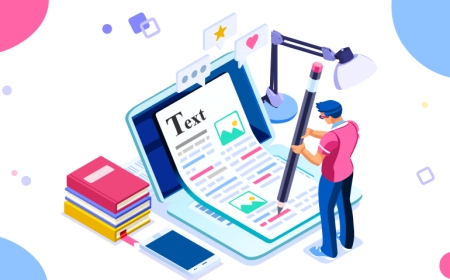Building Smart Apps for Smart Cities

As urbanization accelerates and cities grow more complex, the integration of smart technologies is not just a luxury but a necessity. Smart cities are leveraging data, sensors, and intelligent infrastructure to enhance the quality of life, streamline urban services, and ensure sustainability. At the heart of this transformation are mobile applications. These apps serve as the digital nervous system for smart cities, connecting people, services, and systems in real time. In this blog, we explore the critical role of mobile app development in building smart cities, with insights from Pixel Genesys, a leader in innovative tech solutions.
What Are Smart Cities?
A smart city uses digital technologies and data to improve decision-making, public services, and the overall living environment. These technologies span a wide range of domains such as transportation, energy, healthcare, public safety, waste management, and more. Key components include:
-
IoT (Internet of Things): Sensors and devices collect data in real time.
-
AI and Machine Learning: Analyze large datasets to optimize services.
-
Mobile Apps: Provide user access to real-time services, alerts, and tools.
-
Cloud Infrastructure: Supports scalability and data storage.
Mobile applications are a vital user interface for these technologies, enabling citizens to engage directly with smart city systems.
Why Mobile Apps Are Crucial for Smart Cities
Mobile apps function as the bridge between citizens and smart city infrastructure. They allow users to interact with services, get information instantly, and make their voices heard.
Key Benefits:
-
Enhanced Communication: Real-time updates, emergency alerts, and service notifications.
-
Improved Public Services: Apps for transportation, waste management, and utilities increase efficiency.
-
Citizen Engagement: Feedback systems and community apps foster participation.
-
Data Collection: Mobile usage helps cities understand citizen behavior and preferences.
-
Automation and Control: Apps let users remotely manage smart home devices, energy usage, and security systems.
At Pixel Genesys, our mobile application development services are designed to ensure seamless integration with smart technologies. We develop apps that support real-time communication, user-centric design, and secure data management.
Types of Smart City Apps and Their Use Cases
1. Smart Transportation Apps
Help users navigate the city with ease by providing real-time updates on traffic, public transit, and parking availability.
-
Live bus/train tracking
-
Smart parking (find, book, and pay)
-
Carpooling and ride-sharing platforms
2. Utility and Energy Management Apps
Allow citizens to monitor and control their energy and water usage.
-
Smart meters and bill tracking
-
Leak detection and usage alerts
-
Solar panel monitoring
3. Public Safety Apps
Provide real-time crime alerts, emergency contacts, and crowd monitoring for large events.
-
SOS and panic button features
-
Incident reporting tools
-
Push notifications for emergencies
4. Environmental Monitoring Apps
Track pollution levels, waste management, and recycling programs.
-
Air and water quality alerts
-
Trash pickup schedules
-
Smart bin level indicators
5. Healthcare and Wellness Apps
Enable telemedicine, health tracking, and real-time updates on local health threats.
-
COVID-19 updates and vaccine alerts
-
Access to virtual healthcare providers
-
Health data integration with wearables
6. Education and Engagement Apps
Support learning and engagement among students and the community.
-
Community learning platforms
-
Online libraries and virtual classrooms
-
Local event participation and volunteering
Apps like these can also serve as great app ideas for students looking to contribute to their cities while building technical and entrepreneurial skills.
Platforms and Technologies Behind Smart City Apps
Creating effective apps for smart cities requires a deep understanding of both the mobile and urban infrastructure landscape. At Pixel Genesys, our team uses cutting-edge technologies to build scalable, responsive, and user-friendly solutions.
Android and iOS Development
Being a top-tier android app development services and iOS app development company, Pixel Genesys ensures native and cross-platform app development tailored for performance and security.
Cloud and Big Data
Scalable cloud storage and advanced data analytics help manage the massive volume of information generated by smart city infrastructure.
IoT Integration
Smart city apps must work seamlessly with IoT devices such as traffic sensors, smart meters, and surveillance systems.
Artificial Intelligence
AI is used to analyze trends, make predictions, and automate responses to dynamic urban challenges like traffic congestion or crime hotspots.
Augmented Reality in Smart City Apps
Augmented Reality (AR) is quickly becoming a key component in smart city development. From enhancing tourism experiences to training city workers and guiding users in public spaces, AR is reshaping urban interaction.
Use Cases:
-
Interactive City Tours
-
Emergency Navigation and Route Guidance
-
Public Utilities Visualization
-
Urban Planning and Visualization Tools
While powerful, integrating AR into smart city apps requires significant planning and investment. Understanding Augmented Reality App Development Cost is essential. Costs vary depending on:
-
AR SDKs and libraries used
-
App complexity and 3D modeling
-
Real-time GPS integration
-
Platform choice (Android/iOS/Both)
Pixel Genesys provides expert guidance and transparent pricing for AR app projects, ensuring value-driven development.
Challenges in Developing Smart City Apps
Creating mobile apps for smart cities is complex. Here are some common hurdles:
-
Data Privacy & Security: Managing sensitive user data securely is a top concern.
-
Integration with Legacy Systems: Many cities use older infrastructure, requiring complex integrations.
-
User Adoption: Designing intuitive interfaces that encourage use across demographics.
-
Scalability: Ensuring the app performs well under high user loads.
-
Interoperability: Apps must work across various devices, sensors, and platforms.
At Pixel Genesys, we tackle these challenges head-on through robust architecture, stringent security protocols, and scalable cloud solutions.
Future Trends in Smart City App Development
1. AI-Driven Personalization
Apps will use AI to deliver tailored content and services based on user habits and needs.
2. Blockchain for Transparent Governance
Decentralized apps for voting, community decisions, and public recordkeeping.
3. Voice-Activated Services
Voice interfaces to improve accessibility for the elderly and disabled.
4. Green Tech Integration
Apps promoting sustainable behavior, eco-friendly transit, and carbon tracking.
5. Cross-City Collaboration Apps
Platforms for cities to share data, solutions, and innovation models.
Conclusion: Smart Cities Need Smart Apps
As cities become more intelligent and data-driven, the role of mobile apps becomes even more vital. From enhancing public safety to promoting sustainability and improving everyday convenience, smart apps are at the core of smart urban living.
Pixel Genesys stands at the forefront of this transformation, offering top-notch mobile application development services, including android app development services, iOS app development, and advanced AR solutions. Whether you're a city planner, a startup, or a student exploring innovative app ideas for students, were here to turn your vision into reality.
Lets build the future togetherone smart app at a time.






































